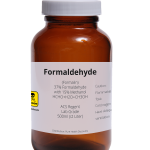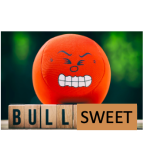Environmental Working Group has again claimed that chemicals in food and consumer products are contributing to obesity. They are mistaken, embarrassingly so.
Chemicals & Chemistry
The FDA recently attempted to ban JUUL vaping products and announced a proposal to cut nicotine levels in combustible cigarettes. The policies are designed to reduce tobacco use—but will they? We have our doubts. Join us for episode 10 of the Science Dispatch podcast.
It is that time of year when my poor dog cowers under the bed as the rocket's red glare of fireworks is seen and heard across the country. Perhaps I am stealing from my fellow writer and chemist, Dr. Bloom, but I just wanted to share what I had learned about the chemistry underlying all that color filling our skies.
The activist group Slow Food recently published a listicle warning consumers about the dangers of pesticides. Let's see if their top-10 list stands up to scrutiny.
In April, the EPA published its draft Integrated Risk Information System (IRIS) Toxicological Review of Formaldehyde (inhalation), a 192-page document. The publication of this document raises issues that go far beyond the health effects of formaldehyde, issues concerning science, policy, the role of our scientific agencies, and the potential overreach of government regulatory authority.
On Episode 5 of the Science Dispatch Podcast, ACSH contributor Dr. Barbara Billauer recounts the tragic story of the "Radium Girls," a cohort of young women who were gradually sickened and killed by occupational radium exposure in the early 20th century. Subsequent research has shown that their employers knew the girls were at risk, but denied culpability and continuously assured them that all was well.
These shocking developments changed the way we view occupational health and safety—providing the foundation for current radiation exposure standards.
On Episode 3 of the ACSH Science Dispatch Podcast, we examine how food shortages caused by the Ukraine war have pressured Europe to abandon its long-held GMO phobia. Is this the silver lining of a tragic situation? We then discuss the value of pesticides, using a recent NPR story about giant spiders as a springboard.
You can be blindfolded, throw a stone, and probably hit a writer who gets the opioid crisis all wrong. Today, let's throw one at German Lopez of The New York Times.
A reader asked us to examine a recent opinion piece full of spurious claims about the weed killer glyphosate. The story further confirms that newspapers cannot be trusted to faithfully report the facts about pesticide safety.
Introducing the ACSH Science Dispatch Podcast — the weekly show where we separate science fact from science fiction.
Crappy studies on the alleged harm of artificial sweeteners are about as common (and valuable) as a wad of gum stuck under a school chair. Yet, here's another claiming that consumption of artificial sweeteners, especially aspartame and acesulfame-K, are associated with cancer. Shall we dismantle it? I say yes.
Just like a trip to the dentist, it's time for The Dreaded Chemistry Lesson From Hell. This time we'll discuss the element xenon. Also, Dr. Charles "Chuckie D." Dinerstein gets his comeuppance. And a mini-book review. No extra charge!











